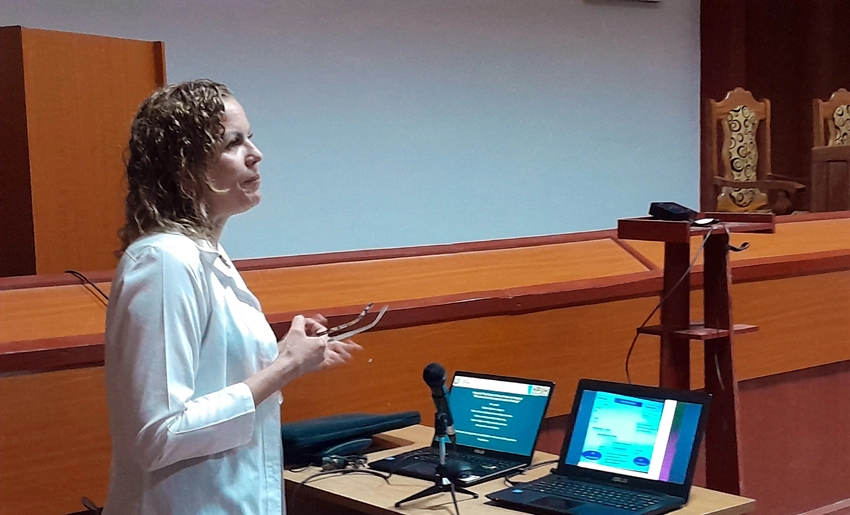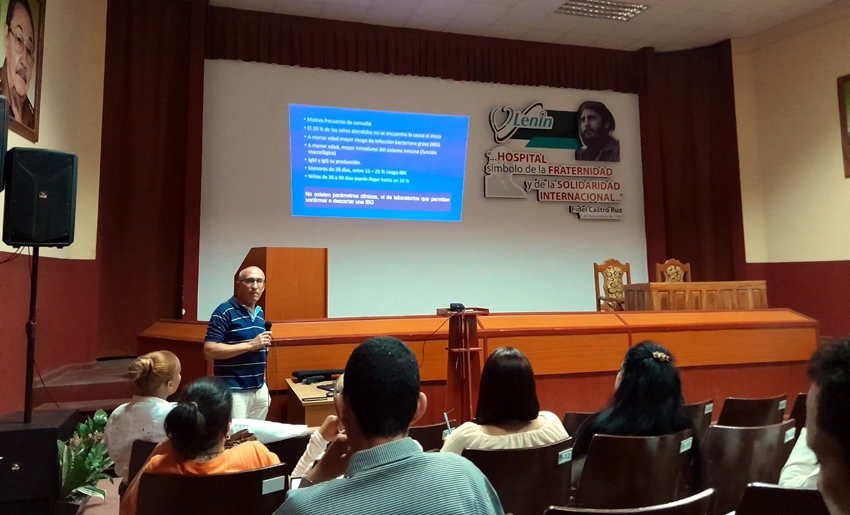About a hundred health professionals in Holguin province linked to the work in intensive therapy and emergency medical services. Both in the pediatric and adult areas, gynecologists, obstetricians, residents and nursing staff met recently at the General University Hospital Vladimir Ilich Lenin. For a necessary update of knowledge on the care of the extremely ill child.
According to statements made by Alberto Rubén Piriz Assa, head of the Maternal and Infant Care Program (PAMI) at the General Directorate of Health (DGS). This action complements a joint activity between the Cuban Society of Adult and Pediatric Intensive and Emergency Medicine and Obstetrics. Together with other specialties involved in the care of critically ill patients.
Piriz Assa informed that topics such as fever without focus, hemolytic uremic syndrome due to renal failure and perinatal conditions in pregnant adolescents were analyzed, given the high incidence of this health problem in the territory. Thus, the protocols of action from Primary Health Care (PHC), secondary care to intensive care were evaluated.
The municipal intensive care units participated in this training action, with the exception of the eastern municipalities. Where it will be carried out later, with the aim of achieving comprehensive care for this type of conditions.
In this sense, the pediatric intensivist explained how important it is to unify criteria for the management of extremely ill patients and not to deliberately leave their care, “because if we unite and work with a protocol sequence that is updated every three or six months, based on the evidence of what is going well and everything that needs to be changed is changed. Collegially in the intensive care medicine group, the results will be better”, she said.
On the main conditions that affect pediatric mortality and morbidity in the first months of life, the health official added that in young children it is fever, generally 20 percent of them develop a serious infection, which is called sepsis because the focus is not on a specific side.
To the extent that agreements are reached and protocols for the management and comprehensive care of pediatric patients are standardized, better results will be obtained, which will translate into more children being discharged from the hospital with their health restored.
Translated by Aliani Rojas Fernandez
- The 4th edition of the Master’s Program in Natural Medicine will begin in Holguin - 16 de January de 2026
- Blood Bank Inaugurated at Holguin Military Hospital - 15 de January de 2026
- Holguin Cancer Center Plans to Incorporate Endoscopic Surgery in Urology - 14 de January de 2026

